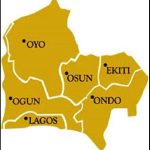
Maiduguri, the bustling capital of Borno State, is known for its vibrant culture and resilient people. However, for one key group in the city’s transport system, daily life is marred by challenges that threaten their livelihoods: the Keke (tricycle) riders.
In a city where tricycles serve as the primary means of transportation for many residents, these riders face constant hurdles from various enforcement agencies, including Police, Vehicle Inspection Officers (V.I.O.), and the Borno State Transport Management Agency (BOTMA). Their challenges revolve around parking slots, allegations of overloading, and restrictions on certain goods and services.
One of the most pressing concerns is the lack of designated parking spaces. Keke riders are often forced to drop passengers at spots where no signs or warnings indicate parking restrictions. Yet, enforcement personnel frequently appear out of nowhere to apprehend these drivers, imposing fines and demanding payment on the spot. A troubling incident exemplifies this issue: a keke rider was stopped and fined by a police officer for parking at an alleged prohibited zone. Neither the rider nor the passengers, including this writer, saw any sign indicating a restriction. This leaves many wondering if some officers lie in wait, targeting unsuspecting drivers to extract fines.
Overloading is another contentious issue. Riders are frequently accused of carrying excess passengers or goods, even in cases where the load is within permissible limits. This has created an atmosphere of uncertainty and fear among rider, as they can be penalized arbitrarily.
These recurring challenges highlight a pressing need for intervention. The government must address the concerns of Keke riders, starting with clearer regulations and enforcement mechanisms. Parking spaces should be properly marked with visible signs, and enforcement officers must act transparently, avoiding practices that appear exploitative. Moreover, there should be a structured grievance process for riders to appeal unjust fines and penalties.
Keke riders form the backbone of Maiduguri’s local transport system. Their struggles are not just their own, they ripple out to affect the daily lives of countless residents who rely on their services. Addressing these issues will not only protect their livelihoods but also ensure smoother transportation for all Maiduguri residents.
As the city continues to grow and develop, it is imperative for authorities to consider the plight of keke riders. A fair, transparent, and organized system will go a long way in fostering trust between these drivers and enforcement agencies, ultimately benefiting the community at large.
Since the government can’t provide jobs and amenities to make life better for the citizens, the least it can do is provide an enabling environment for them to strive for sustenance without being harassed and restrained by police and other enforcement agents.
The keke riders and the entire residents in Maiduguri would appreciate any attempt to checkmate the inhibiting activities of these agents, which will go a long way in enhancing mobility of the people who heavily rely on keke as a basic means of transport.
•By Bilqees Uthman Malami



